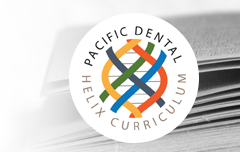Presentation Category
Other
Introduction/Context/Diagnosis
Objectives: The correlation between lower levels of self-esteem and body appreciation has been firmly established, alongside their association with heightened feelings of anxiety, depression, and disordered eating. Understanding the intricacies of human anatomy can empower students to comprehend the complex physiology of their bodies, fostering a deeper self-awareness. Such knowledge may potentially bolster levels of body appreciation and self-esteem, thus yielding favorable mental health outcomes. Methods: Anonymous pre- and post-class surveys were administered to undergraduate and predoctoral dental students across three universities at the commencement and conclusion of their respective human anatomy courses. Established and reputable scales were utilized to assess relative levels of self-esteem and body appreciation before and after the courses. Results: Analysis of pre- and post-class survey responses indicates a notable increase in average self-esteem and body appreciation scores among undergraduate students, females, and those new to anatomy coursework. Conversely, predoctoral students, males, and individuals with prior anatomy course experience demonstrated minimal (< 1%) or no enhancements in self-esteem or body appreciation. Additionally, post-class survey inquiries elicited feedback from students regarding perceived changes in their own body appreciation and self-esteem due to the study of human anatomy. Of these responses, 82.9% of students reported heightened body appreciation as a result of the course, while 66.9% indicated an increase in self-esteem. Conclusion: Our findings suggest a potential positive psychological impact of human anatomy education on levels of body appreciation and self-esteem, particularly among female students, those in earlier stages of education, and individuals without previous exposure to anatomy coursework. Enhanced integration of human anatomy curriculum into students' academic pursuits could potentially lead to improved mental health outcomes. Acknowledgements: We extend our sincere gratitude to Dr. Novak, Dr. Asadi, and professor Forooghi for their unwavering support and mentorship throughout this study!
Location
Arthur A Dugoni School of Dentistry, 155 5th St, San Francisco, CA 94103, USA
Format
Presentation
Exploring the Relationship Between Human Anatomy Education and Its Impact on Body Appreciation and Self-esteem Among Students
Arthur A Dugoni School of Dentistry, 155 5th St, San Francisco, CA 94103, USA
Objectives: The correlation between lower levels of self-esteem and body appreciation has been firmly established, alongside their association with heightened feelings of anxiety, depression, and disordered eating. Understanding the intricacies of human anatomy can empower students to comprehend the complex physiology of their bodies, fostering a deeper self-awareness. Such knowledge may potentially bolster levels of body appreciation and self-esteem, thus yielding favorable mental health outcomes. Methods: Anonymous pre- and post-class surveys were administered to undergraduate and predoctoral dental students across three universities at the commencement and conclusion of their respective human anatomy courses. Established and reputable scales were utilized to assess relative levels of self-esteem and body appreciation before and after the courses. Results: Analysis of pre- and post-class survey responses indicates a notable increase in average self-esteem and body appreciation scores among undergraduate students, females, and those new to anatomy coursework. Conversely, predoctoral students, males, and individuals with prior anatomy course experience demonstrated minimal (< 1%) or no enhancements in self-esteem or body appreciation. Additionally, post-class survey inquiries elicited feedback from students regarding perceived changes in their own body appreciation and self-esteem due to the study of human anatomy. Of these responses, 82.9% of students reported heightened body appreciation as a result of the course, while 66.9% indicated an increase in self-esteem. Conclusion: Our findings suggest a potential positive psychological impact of human anatomy education on levels of body appreciation and self-esteem, particularly among female students, those in earlier stages of education, and individuals without previous exposure to anatomy coursework. Enhanced integration of human anatomy curriculum into students' academic pursuits could potentially lead to improved mental health outcomes. Acknowledgements: We extend our sincere gratitude to Dr. Novak, Dr. Asadi, and professor Forooghi for their unwavering support and mentorship throughout this study!




Comments/Acknowledgements
Presentation Category: PIP: Bench or Clinical Research